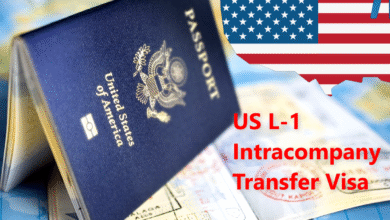Top 10 Family Law Attorneys in California: How to Choose the Best for Your Case

Finding the can be challenging, especially when facing the emotional and financial strain that often accompanies family-related legal matters. California’s complex family law system requires a knowledgeable attorney who can expertly navigate divorce, child custody, spousal support, and property division cases. With such high stakes, choosing the right legal representation can significantly impact the outcome of your case, making it essential to select an attorney who not only has experience but also a genuine commitment to protecting your rights and interests.
In this guide, we’ll highlight ten of California’s leading family law attorneys, known for their expertise, client-centered approach, and track record of success. Each attorney brings unique skills to the table, catering to diverse needs, from amicable settlements to high-conflict cases. Additionally, we’ll provide tips on what to look for when choosing the best attorney for your situation, from evaluating experience to understanding fees and ensuring effective communication.
Top 10 Family Law Attorneys in California
Understanding Family Law in California
Family law covers a wide range of issues that arise within familial or domestic relationships. It includes:
- Divorce and Legal Separation
- Child Custody and Visitation
- Spousal and Child Support
- Domestic Violence and Restraining Orders
- Property Division
California’s approach to family law often emphasizes mediation and equitable division, with a focus on protecting children’s welfare and ensuring fair outcomes in property and financial disputes. Knowing these legal intricacies makes it crucial to choose a family lawyer well-versed in California’s specific requirements.
Why It’s Essential to Choose the Right Family Law Attorney
Family law cases are often emotionally charged and financially significant. A skilled family law attorney not only guides you through the legal process but also helps manage your expectations, offers objective advice, and advocates for your best interests. Choosing wisely can mean the difference between a smooth legal process and a prolonged, stressful experience.
Criteria for Choosing the Best Family Law Attorney
Here are key criteria to consider when selecting a family law attorney:
- Qualifications and Education: A strong educational background and specialized family law training.
- Experience: Years in practice, especially with cases similar to yours, and familiarity with California’s courts.
- Reputation and Reviews: Checking testimonials, client reviews, and professional recognitions.
- Specialization: Some attorneys focus on specific areas within law, such as child custody or high-net-worth divorce.
The Importance of Experience in Family Law
Experience is often the most crucial factor when choosing a law attorney. Experienced attorneys have a deep understanding of legal strategies, potential challenges, and effective negotiation techniques. An experienced lawyer will also anticipate obstacles, ensuring the case moves efficiently through California’s legal system.
Reputation and Client Reviews
The reputation of an attorney can often tell you more than credentials alone. Research online reviews, speak with past clients if possible, and check for recognitions or awards. While positive reviews are a good indicator of quality, it’s also essential to note any recurring issues or “red flags” in client feedback.
Top 10 Family Law Attorneys in California
Here are ten top-rated family law attorneys across California:
- Laura Wasser (Los Angeles): Known for high-profile celebrity divorces and excellent negotiation skills.
- Peter M. Walzer (Woodland Hills): A seasoned expert in complex family law cases with a specialization in mediation.
- Erin Levine (Oakland): emphasizes compassionate divorce services and is the founder of Hello Divorce.
- Thomas Trent Lewis (Beverly Hills): retired judge and respected family law mediator with decades of experience.
- Emily J. McFarling (San Diego): A certified family law specialist with a strong focus on child custody cases.
- Stephen J. Wagner (San Francisco): Known for high-stakes divorce cases involving significant assets.
- Michelle S. Robins (Encino): Expert in property division and complex custody issues.
- Robert Nachshin (Santa Monica): Recognized for his work with high-asset divorces and client-centered approach.
- Elise G. Mitchell (Long Beach): Offers extensive experience in family law and is noted for her client dedication.
- Heather Mazzei (Sacramento): Strong advocate for client rights in child custody and domestic violence cases.
Detailed Profiles of the Top 10 Attorneys
Laura Wasser (Los Angeles)
- Qualifications: Founder of the online divorce platform It’s Over Easy.
- Notable Cases: High-profile celebrity cases, including actors and musicians.
- Client Strengths: Known for fierce negotiation skills and discretion.
Peter M. Walzer (Woodland Hills)
- Qualifications: Past president of the American Academy of Matrimonial Lawyers.
- Specialization: Complex mediation and collaborative divorce.
- Success Rate: High success rate in resolving cases without court intervention.
Erin Levine (Oakland)
- Qualifications: Founder of Hello Divorce, which simplifies the divorce process online.
- Specialization: Online, low-cost divorce and mediation.
- Client Testimonials: Praised for her empathetic approach to family constitution.
How to Schedule a Consultation and What to Ask
Scheduling a consultation is a critical first step. During the consultation, ask about:
- Experience with Cases Like Yours
- Fee Structure
- Expected Timeline for Your Case
Ensuring Effective Communication with Your Attorney
Effective communication with your attorney is crucial in any family constitution case. Here’s why it matters and how to make it work best:
- Regular Updates: Your attorney should keep you informed about any new developments. A proactive attorney will update you on court dates, deadlines, or changes in your case.
- Availability and Responsiveness: Ensure that your attorney is accessible for urgent matters. This can be especially important in family law, where urgent decisions may need to be made about children or finances.
- Clear Communication Style: Make sure your attorney explains complex legal issues in ways you can understand, not just in “legalese.” A good family law attorney will break down the process and answer your questions without jargon.
- Setting Expectations Early On: Agree on the frequency of updates and preferred communication methods (phone, email, or in-person meetings) to avoid misunderstandings.
How Family Law Attorneys Help in Specific Cases
Family law covers a variety of situations, and attorneys often specialize in particular types of cases. Here’s a look at how they can help:
- Divorce and Separation: Attorneys assist with the division of assets, alimony, and legal separation agreements.
- Child Custody and Visitation: They advocate for your parental rights and can help negotiate custody agreements that prioritize the child’s best interests.
- Domestic Violence and Restraining Orders: In cases of domestic violence, family constitution attorneys can help you obtain protection orders and assist with ensuring your safety.
- Property Division: California’s community property laws require careful negotiation to divide assets equitably. Experienced attorneys can help protect your assets and ensure a fair settlement.
- Spousal and Child Support: An attorney can help calculate fair support amounts based on California’s guidelines and address modifications if circumstances change.
Tips for Working Effectively with Your Family Laws Attorney
Getting the most from your attorney-client relationship can impact the outcome of your case. Here are ways to work effectively with your attorney:
- Stay Organized: Keep all relevant documents (financial records, communication logs, court papers) well-organized and ready to share with your attorney.
- Be Transparent: Openly communicate about all aspects of your case. Hiding details can hurt your case and affect your attorney’s ability to represent you effectively.
- Follow Legal Advice: While it’s natural to feel emotional in family law cases, following your attorney’s advice can help you achieve the best possible outcome.
- Manage Expectations: Be prepared for the fact that legal cases can be lengthy and unpredictable. Set realistic expectations with your attorney upfront about likely outcomes and timelines.
Read More:Top Corporate Law Firms in Texas: Legal Experts for Your Business Success
Conclusion
Finding the right family law attorney in California can make all the difference in navigating the complex and emotional world of family law. The attorneys on this list represent some of California’s finest, bringing experience, empathy, and expertise to their clients’ cases. Take the time to research, meet with multiple candidates, and find an attorney who fits both your needs and personality. Remember, a well-chosen family constitution attorney isn’t just a legal representative—they’re a trusted advocate and advisor through one of life’s most challenging times.
FAQs
1. What questions should I ask a family law attorney during the initial consultation?
During a consultation, it’s important to ask about the attorney’s experience with cases similar to yours, their fee structure, how often you can expect updates, and any likely challenges in your case. Additionally, ask about their approach to settlement vs. litigation and what outcomes they foresee.
2. How long does a typical family law case take in California?
The length of a family law case in California can vary widely depending on the complexity. Simple cases might resolve in a few months, while complex divorces or custody battles can take a year or more. Working with a skilled attorney can help keep the process as efficient as possible.
3. What’s the average cost of a family law attorney in California?
The cost of family law attorneys in California ranges widely. In larger cities, hourly rates can range from $300 to $800 or more. Some attorneys offer flat-fee arrangements for specific services. Consulting with multiple attorneys to understand their fees can help you budget appropriately.
4. Can I switch attorneys mid-case if I’m not satisfied?
Yes, you have the right to change attorneys if you’re not satisfied, though it’s best to avoid frequent changes. Communicate your concerns first to see if any issues can be resolved. If not, finding a new attorney may be beneficial to ensure you receive the representation you need.
5. What should I do if I can’t afford a family laws attorney?
If you can’t afford an attorney, you may qualify for free or low-cost legal aid services. Many non-profits and family courts offer resources and consultations to help those with limited financial means, especially in cases involving child custody or domestic violence.











